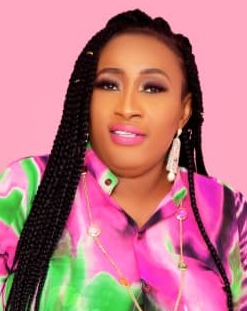By Christie Oby Ndukwe
In part 1 of this series which received a lot of accolades as well as attention from different sections of the society and even beyond, it was obvious towards the end, the reason for the title. Unfortunately, not many know the story of the Trojan Horse even though it is recorded as a Greek mythology. While the Wikipedia describes so, it is becoming realer than imagined as the quest for power and domination continue to live with humanity and not the black world is excluded. The making of the Nigerian Trojan Horse is non-fiction, yet a lesson from history.
Let me use this opportunity to take the uninformed through a fact-finding mission of this historical record and why the power shift agitation should not be a waste of resources on a possible failed mission.
According to the Britannica Encyclopedia, the “Trojan horse, huge hollow wooden horse constructed by the Greeks to gain entrance into Troy during the Trojan War. The horse was built by Epeius, a master carpenter and pugilist. The Greeks, pretending to desert the war, sailed to the nearby island of Tenedos, leaving behind Sinon, who persuaded the Trojans that the horse was an offering to Athena (goddess of war) that would make Troy impregnable. Despite the warnings of Laocoön and Cassandra, the horse was taken inside the city gates. That night Greek warriors emerged from it and opened the gates to let in the returned Greek army. The story is told at length in Book II of the Aeneid and is touched upon in the Odyssey. The term Trojan horse has come to refer to subversion introduced from the outside. Beginning in the late 20th century, the name “Trojan horse” was applied to deceptively benign computer codes that seem like legitimate applications but are written to damage or disrupt a computer’s programming or to steal personal information.”
The Greeks eventually won the war through the art of deception! A war they were supposed to lose.
The battle for 2023 is thickening as different interests continue to horsetrade behind the scenes. It is becoming rather difficult to stifle the voice of those who insist that power should move from the North of Nigeria to the South. Any other contrary opinion is termed by public opinion as an attempt to further divide the country and worsen the present scenario where ethnic cards have become the major fault line in the Nigerian contemporary politics.
Yet, the attempt to foist a Southerner as President can only be a test of our democratic ideals as enshrined in the Nigerian Constitution which unfortunately, is silent on rotation and zoning.
In spite of the fact that there are specific considerations on the choice of who takes on the baton after President Buhari, the political space is becoming polluted with all manner of people who think themselves competent to run the race but not cut out to win the crown in the end. I will restrict my piece to the real contenders while leaving the pretenders to their fate.
Much as the population and electoral figures continue to be a phantasm of their manufacturers, it is absolutely impossible to succeed electorally without the backing of the North. The numbers favour them and so they continue to pride themselves as the natural kingmakers or the born-to-rule, depending on which side of the coin they choose.
Buhari’s ruling party, the All Progressives Congress, APC, is expected to strengthen our democracy and move it from infancy to adolescence. It is therefore a rite of passage for the APC to zone its Presidential ticket to the South. This should not be a matter for debate. But there is a lacuna here. If the balance of power between the North and the South is weighed on a scale, from the time of this uninterrupted democracy, which we pray remains so, the South has successfully held on to power for 14 years, with Obasanjo and Jonathan as the occupants of Aso Rock, the seat of power. On the other hand, the North would have held on to power for 10 years, by 2023, when Buhari completes his second tenure. Recall that Obasanjo
Written by Chief Obiaruko Christie Ndukwe, a socio-political commentator, analyst and columnist based in Port Harcourt, Rivers State






